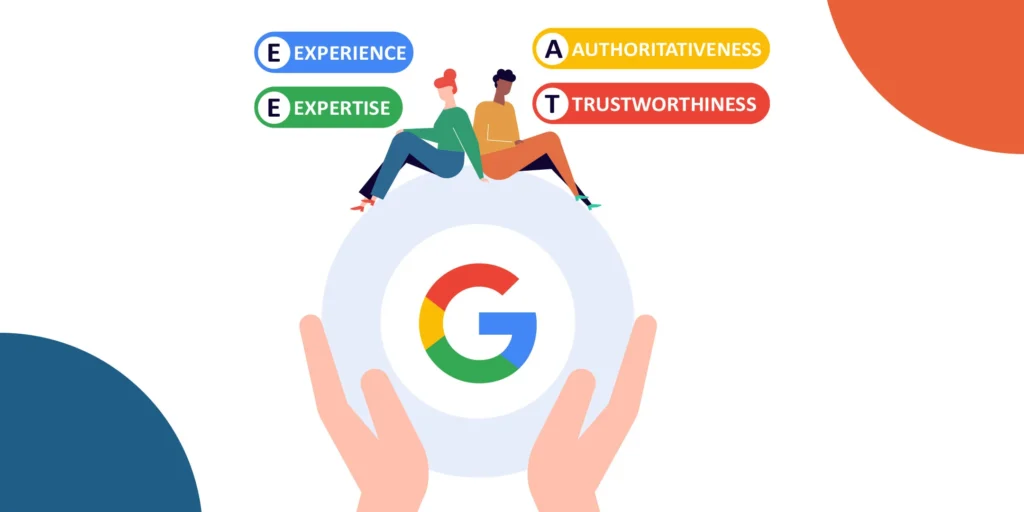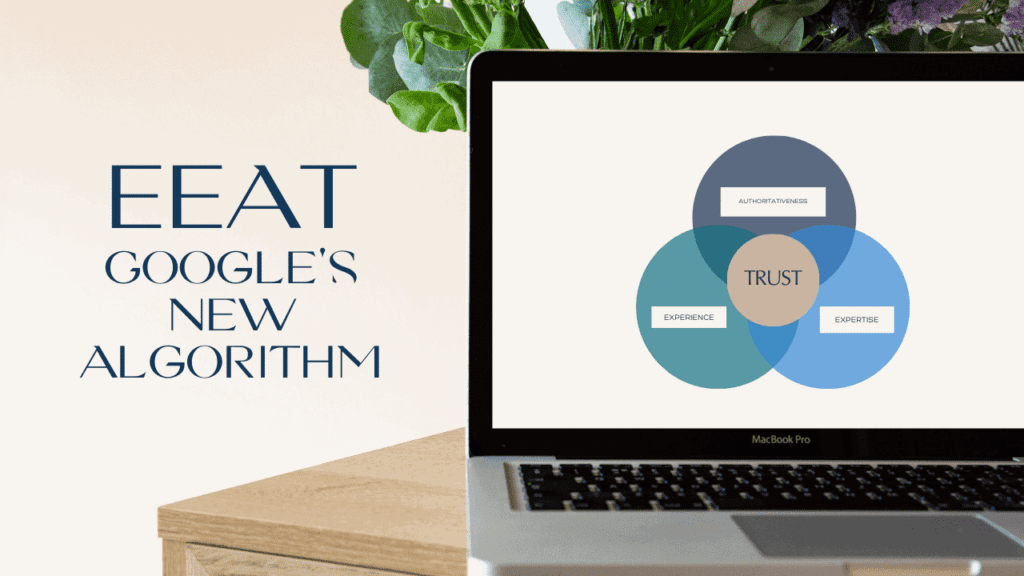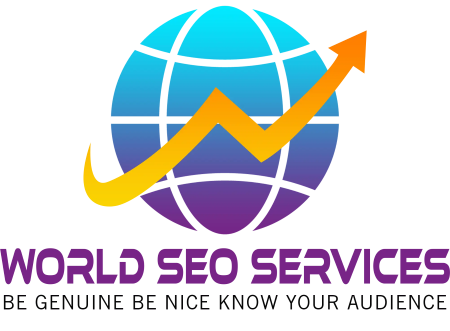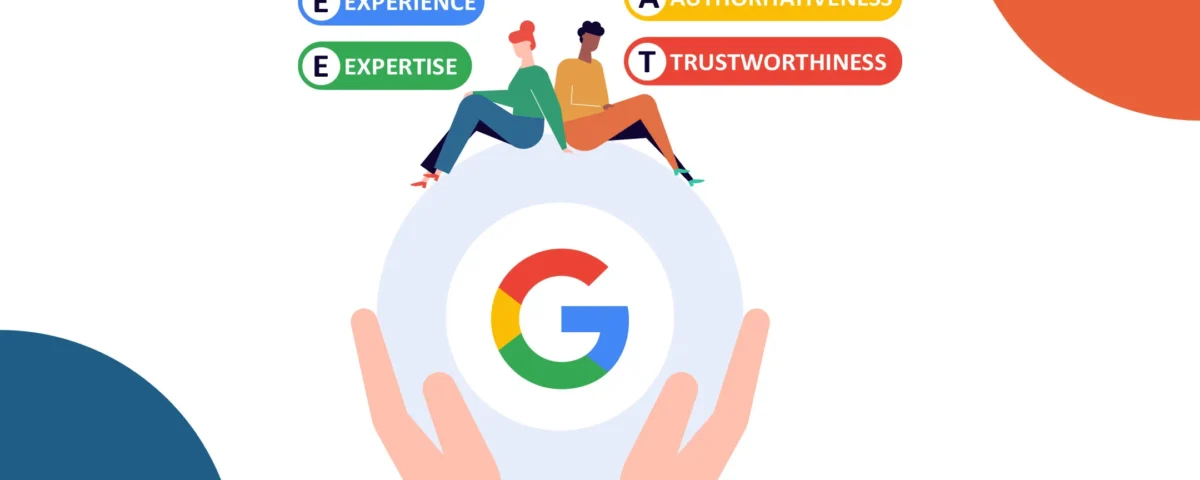- Have any questions?
- +91 96020 93137
- +91 93525 62080
- info@worldseoservices.com
E-E-A-T in 2025: How Google’s Algorithm is Elevating Trust and Expertise

Google’s Focus on User Experience: Key 2025 Algorithm Updates Explained
December 9, 2024Dive into Google’s emphasis on Experience, Expertise, Authority, and Trustworthiness.
In 2025, Google continues to evolve its algorithms with a heightened focus on providing users with the most reliable, relevant, and valuable content. At the heart of this evolution lies E-E-A-T, an acronym for Experience, Expertise, Authoritativeness, and Trustworthiness. With the introduction of new standards and stricter enforcement, Google is setting a higher bar for online content. This means businesses, content creators, and marketers must adapt to stay visible in search rankings.
At World SEO Services, we understand the critical role E-E-A-T plays in shaping digital strategies. This article delves into how E-E-A-T in 2025: Google’s Algorithm is Elevating Trust and Expertise and how you can align your content strategies to meet these benchmarks.

What is E-E-A-T?
E-E-A-T represents Google’s framework for evaluating content quality, which impacts rankings. Here’s what each component signifies:
- Experience: Demonstrates first-hand knowledge or personal engagement with the subject matter.
- Expertise: Indicates in-depth knowledge or skills relevant to the topic.
- Authoritativeness: Shows credibility through recognition, citations, or industry status.
- Trustworthiness: Ensures the content and its source are reliable, transparent, and safe.
Why E-E-A-T Matters in 2025
Google’s commitment to delivering accurate and valuable information means that E-E-A-T is central to its ranking criteria. For businesses, meeting these standards helps to:
- Build credibility with audiences.
- Gain higher rankings on search engine results pages (SERPs).
- Enhance user engagement and retention.

Key Updates to E-E-A-T in 2025
1. Experience Takes the Spotlight
In 2025, Google emphasizes experience more than ever. Content created by individuals with first-hand involvement or unique insights is ranked higher.
What It Means:
- User-generated content (like reviews or testimonials) gains traction.
- Brands are rewarded for showcasing real-world application and case studies.
How to Adapt:
- Incorporate personal narratives, behind-the-scenes details, or experiential insights into your content.
- Feature employees, customers, or influencers who have direct experience with your products or services.
2. AI Content and Expertise
AI-generated content remains a focus area for Google, particularly ensuring it aligns with E-E-A-T standards. While AI tools can create content, it must be reviewed and enhanced by subject matter experts.
What It Means:
- Purely AI-generated content may lack trustworthiness or expertise, resulting in penalties.
How to Adapt:
- Use AI as a tool for efficiency but have human experts validate, edit, and enrich the output.
- Clearly disclose when AI tools are used to maintain transparency.
3. Strengthened Trustworthiness Metrics
Google’s algorithm now prioritizes websites with robust security, transparent ownership, and verifiable credentials.
What It Means:
- Sites with poor security measures or misleading content face significant penalties.
- Transparency about authors, publishers, and sources is critical.
How to Adapt:
- Ensure your website uses HTTPS and robust cybersecurity measures.
- Provide detailed author bios, linking to their credentials and social profiles.
- Cite reputable sources and include references for data-driven content.
4. Multimodal Content Validation
In 2025, Google evaluates not only written content but also visual and audio materials.
What It Means:
- Images, videos, and podcasts are assessed for relevance and authenticity.
- Mismatched or misleading multimedia can harm E-E-A-T scores.
How to Adapt:
- Use original visuals and videos, avoiding stock content when possible.
- Optimize multimedia with accurate alt text, captions, and descriptions.
5. Industry-Specific Standards
Certain industries, like health, finance, and legal sectors, now face stricter E-E-A-T evaluations under Google’s YMYL (Your Money or Your Life) guidelines.
What It Means:
- Content in these niches must be produced by verified experts and meet the highest standards of accuracy and reliability.
How to Adapt:
- Partner with industry professionals to create or validate content.
- Keep information up-to-date and compliant with regulatory requirements.
Opportunities with E-E-A-T in 2025
1. Building Brand Authority
E-E-A-T offers a framework for establishing your brand as a trusted leader in your industry. By producing high-quality content and engaging with your audience, you can enhance your online reputation.
2. Fostering Audience Loyalty
Trust is a key driver of loyalty. Content that meets E-E-A-T standards not only ranks well but also builds deeper connections with your audience.
3. Expanding Reach
As Google prioritizes trustworthy content, adhering to E-E-A-T principles can help your business reach wider and more relevant audiences.

Challenges in Meeting E-E-A-T Standards
- Resource Demands: Producing expert-level content and maintaining transparency requires time and investment.
- Dynamic Requirements: Google’s algorithm updates frequently, necessitating ongoing adjustments.
- Increased Competition: As more businesses optimize for E-E-A-T, standing out becomes harder.
How to Excel at E-E-A-T in 2025
- Focus on Quality Over Quantity: Publish fewer, high-quality pieces rather than flooding your site with low-value content.
- Showcase Your Expertise: Use certifications, accolades, and industry credentials to build credibility.
- Enhance User Experience: Ensure your website is fast, secure, and easy to navigate.
- Engage Authentically: Respond to user comments and feedback to foster trust and community.


